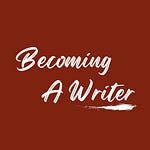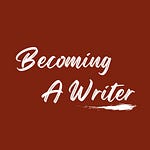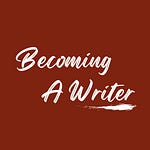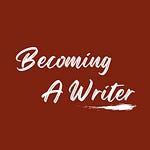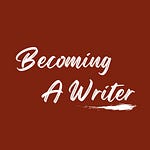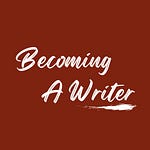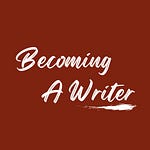Hello, my writer friends! Rubina here. For our tenth conversation, we are going to talk about how starting small is the key to get our writing momentum going.
My first attempt at my novel was a disaster.
With one hand, I was slashing the pen across the page. And with the other, I was tearing my hair out.
"Why the hell can't I write this story?"
I slam the book close and pushed it away.
Maybe I'm not supposed to be a writer.
Ugh! Here we go again! That negative, self-doubtful voice.
I was in the third year of my writing gap year, and I still hadn't written a good story.
I had this fantastic idea pop in my head - a detective fiction set in present-day London - but I couldn't put it down on paper. I knew who my main characters were, what I wanted them to do, and how the story ended. But since I was following the overrated advice of having an outline, instead of just diving into the story, I spent a month figuring out every plot point, every twist and turn and every resolution for my story.
By the time I sat down to write my novel, technically, I knew everything about it, and yet I knew nothing. Every single day, it was painful to write the novel. It felt like I was dragging a screaming and fighting toddler through the supermarket and hoping this mess would end.
I was trying so hard - pushing myself, forcing myself, crying myself - to write something to validate my decision to take the gap year. I knew I was a writer. I just didn't want others to tell me I wasted my time.
Here I was, a young woman trying to write her first novel to make it as a writer - and I couldn’t bear a moment of it.
It was one of the most heartbreaking moments of my writing life.
Inevitably, I had to take a break from the novel. I went back to reading and learning more about writing. Why was writing being such a pain in my ass? – That’s the question I needed the answer to. Eventually, and thankfully, I found one answer in a YouTube video featuring science fiction author Ray Bradbury.
It was his 2001 keynote speech titled Telling the Truth at the University of California Television (UCTV). Out of the many lessons I learnt from this almost one-hour video, I learnt one massive lesson I needed at that time, which came in two parts. He said –
"The problem with novels is you can spend a year writing one, and it might not turn out well because you haven't learned to write yet."
"The best hygiene for beginning writers or intermediate writers is to write a hell of a lot of short stories. If you can write one short story a week—it doesn't matter what the quality is to start, but at least you're practising, and at the end of the year, you have 52 short stories, and I defy you to write 52 bad ones. Can't be done. At the end of 30 weeks or 40 weeks or at the end of the year, all of a sudden, a story will come that's just wonderful."
I face-palmed myself so hard when I heard this.
With my novel, I had no idea what I was doing. I had no confidence in myself or my words. And since I had no immediate results, I didn't understand if I was doing it right. That resulted in beating myself up and further lowering my confidence and self-belief. So, of course, starting my writing life with short stories would work in my favour, and it did!
Starting small helped me build my writing habit.
Let's say you want to start a new fitness routine. And you have never worked out before. You're wrong if you think you can pull off an hour of rigorous exercise. You can maybe do it at that moment, but you won't realise how much you're hurting your body and mind with this sudden exertion. This is why many of us fall off the track within a month. It's not sustainable.
What you want to do is grow into the habit of the activity.
Same way, as a new writer, I had to get comfortable sitting at a desk and let my fingers do all the talking.
So, starting with a small, attainable goal like writing a short story got my writing ball rolling. Then, over time, writing became my second nature.
Starting small helped me build my writing muscles.
Let's go back to the gym. It's your first day. You don't want to pick up 50 kg dumbbells and hurt yourself. You should pick up 5 kg. And if that's still heavy and uncomfortable, you'd go for 3 or 2.5 kg. Your goal should be to increase the weight gradually. That way, your muscles get used to the weights and learn how to manage them.
As a new writer, I had to let my mind get used to churning out words. Then, slowly increase the output.
First, I found out what my comfortable range is. Earlier, I figured out 500 words a day was a good range, but later, I realised that I am more of the how-much-time-needed kind of person, which turned out to be two hours per day, for about 3 to 5 days a week. Some days, it’s more, and some days, it’s less, but I am happy in either case as I am able to strengthen my writing muscles.
Starting small helped me practice and fine-tune my craft.
You have been at the gym for over a month now. Slowly, you're learning the craft and understanding how you'd like to go about it. There'll be specific exercises you'll prefer more than others. You have found a particular way of using the weights. It's nothing drastically different from what others are doing, just your take on it.
Similarly, by writing short stories, I learnt quicker how to write fiction and make it good. My short stories gave me the space to experiment and grow without having too much at stake.
Starting small helped me get immediate feedback on what's working and what's not.
Those little aches and pains you have while exercising are signs that you are doing a good job. That sharp pain that makes you stop is a sign that you did something wrong.
Since experimenting with my short stories, I got immediate feedback if the readers enjoyed my work. The feedback was quick because writing and reading a short story is quicker than writing and reading a novel.
And it didn’t matter even if I got the readers' feedback. The moment I was done writing one short story, I immediately knew where I had to improve. You see, I was also a reader before I became a writer. Therefore, subconsciously, I knew what worked and what didn’t. So, when I wrote the next story, I adjusted my writing according.
Starting small helped me believe in myself when I said I’m a writer.
In his book The Atomic Habits, author James Clear says, "Every action is a vote for the type of person you wish to become."
After what I have been experiencing in my writing career so far, I agree with it. Every time I finish a writing session, every time I finish an article or, a short story or a chapter, I feel accomplished. I feel proud of myself. I feel so because I am doing what I said I would – writing. This makes me trust in my belief that, slowly and steadily, I'll also make it as a successful author.
Well, that's it for today. Next time we meet, we'll talk about how consistency can help you become the writer of your dreams.
Until then, keep writing, my friend.
my friend.
📚 My non-fiction book for writers -
Soul Writer vs. Social Writer - Find Out Which One Are You?, Why Is It Important, and Finding Your Sweet Spot.
Amazon US | Amazon UK | Amazon India
🏡 My homes on the internet -
Spotify | Apple Podcast | Amazon Music
YouTube | YouTube Music | Instagram (Podcast) | Substack
A Rubina’s Bojra Production
Directed By: Rubina Gauri Gomes
Produced By: Rubina Gauri Gomes, Books She Has Read, And Life Lessons She Has Learnt
Written By: Rubina Gauri Gomes
Host & Voice Talent: Rubina Gauri Gomes
Music by: Happy Lazy Loop by Serge Quadrado (At Adobe Stock)
Audio-Visual Edited By: Rubina Gauri Gomes
Marketed By: Rubina Gauri Gomes
Fueled By: Coffee ☕
Made With Love, For Fellow Writers And Creatives.🤍






